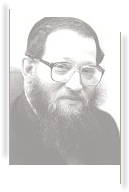
From "Getting to Know Your Self" by the author of "Bilvavi Miskan Evneh"
page 244
If you seek pleasure in something new and different, you are stuck in the mentality of a created being, which by nature is always moving and imbalanced. You cannot find true pleasure on that level. The Creator, though, is unchanging; He is timeless. To find His Presence and the deepest pleasure, you must rise above your level and find balance, which transcends all change.
You may be wondering, "Am I supposed to eat the same foods every day? Should I go to work exactly the same way each day? Must I learn the same songs and read the same books? That would be so annoying!".
But why is that annoying? Because you are used to extremes, and you don't recognize the joy in consistency which confers the absolute and true pleasure! The pursuit of extreme movements come from other nations, who do not have a deep connection with Hashem. But we can truly cleave to Him, by connecting to the state without extremes that does not need to change.
We see that learning balance is necessary in order to be able to find the deepest part of yourself. One who does not guide himself in this way is liable to enter the mode of extremism, never to depart from it.
This insight was the final push that I needed to join OA. The realization that the structure of OA is for my spiritual good opened the door for me.






























From the Bilvavi Mushkan Evneh
ReplyDeletePart Two | Page 223
How do you recognize this Torah with OA?
Eating with contemplation and thought
As we said earlier, before you begin any practical avodah, you must clarify your inner feelings. How? We will return to the example of eating, with the understanding that it is merely a single example.
You are sitting at a table with a particular food in front of you. The moment you feel a desire to eat it, you should think to yourself, “Do I really want to eat this, or not?” As we said, you might have both of these feelings. You should then examine the two wills, and say to yourself, “The desire to eat is an outer will, not my deepest will. It is a lower layer that covers the neshamah, and is referred to as the nefesh habehamis (animal soul). The inner desire of the soul is not to eat this, and this is the will of Hashem, as well.” (Obviously, we are talking about eating for pleasure, not for sustenance.)
Take the food in hand, and say, “I know that my inner component does not want this, but my outer component does. I know that the outer component controls me more than the inner one. Since I know that I am more controlled by the outer than by the inner, I should not fight against the outer because I do not have the strength to do so. Therefore, I will eat the food. It is clear to me that my true ratzon is not to eat, but I cannot yet overcome the outer ratzon; therefore, I will eat!”
One could also argue that the OA approach is one of extremism. In the sense that its focus is solely one of the guf. And nothing of the neshama. Being that it is a program of non-jewish origin, there is no concept with in OA of the proper attitude towards food. The job of a Jew is to take the physical and elevate in to the spiritual. If you look else where in the works of the Bilvavi you will find that the author mentions this is the exclusive ability/job of the Jewish people. So the OA approach is from the outside not from the inside and really misses the essential core. While there maybe positives about OA, in essence its a chitzoniusdik approach to a pnimiusdik and problem. And the proof of that is that people remain on the diet for years upon years never progresses never grow and always identify as an addict. The Jewish neshama is SO much bigger than that and capable of SO much more, but the approach to the problem has to be the right approach, it has to be about the neshama and not the guf. In addition, the end result must move far past this need to live above the pit over-looking one's past mistakes, specifically identifing as an addict. This statement identifies one's core self us the guf, clearly missing the point altogether, that a Jew in essence is a neshama.
ReplyDeleteI go to several different meetings that are all frum people. Every single succesful person in the group will tell you that the spiritual growth that came from "working the program " has been enormous. The nightly writting that is part of the program is an amazing tool for chesbon hanefesh. At the annual Shabbaton there is time scheduled not just for Davening, but for Hitbodedut. Where else do you have a gathering of over 100 frum women that takes time out for Hitbodedut. One peson shared that she taught Chesbon Hanefesh for 30 years in yeshiva, but she never really did it until she joined OA.
ReplyDeleteAnyone who thinks that OA is missing the core has never been part of a frum OA group.